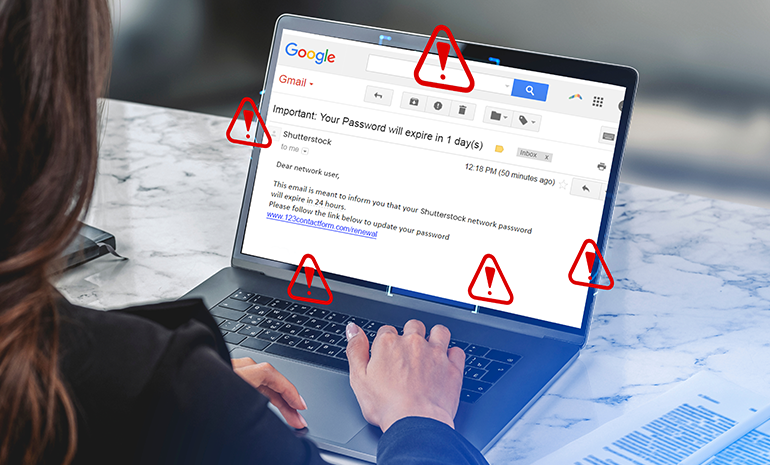To be relevant and competitive, companies have significantly increased their remote workforce. This enables them to hire outstanding talent without worrying about the physical distance. As it’s with everything, expansion, too, comes at a cost, and sometimes it can be unexpected. We are talking about security breaches and data leaks, which can lead to massive losses. Just like on-site employees, remote employees are also prone to these issues. To prevent these dire situations, you guys, HRs, have to don Superman’s cape.
It's a bird! It's a plane! No, it's an HR that understands how to protect its remote employees from hackers!
What are Security Breaches in Remote Work?
Your designer can be working in Shillong while collaborating with an intern in Madgaon and sending the final files to their team lead in Kathmandu. All this can happen while the rest of your team works from the office in Mumbai. It surely makes life easier for the employees, but the headache of the cybersecurity team increases since they are majorly responsible for ensuring data security.
Let’s say the intern in the above works on her project from a beach shack using open Wi-Fi. This automatically makes her laptop vulnerable to hackers. They can inject her system with a virus that can wipe her data, or worse, the virus can send her data to the hackers. That’s still a small breach; a large one can affect several company devices and steal sensitive data. Security breaches for remote workers range from hacking attempts to data leaks to phishing attacks.

Risks Commonly Seen in Remote Work
1. Mass Data and Data Points to Handle
As remote employees can work from anywhere in the world, it adds to the complexity of what the security teams should secure. The number of data points increases along with connections and software. This means multiple points of vulnerability for the hackers.
2. Increased Chances of Phishing attacks
Remote employees are fully dependent on digital communication, which creates a lot more opportunities for cybercriminals to attack them. There’s more scope for hackers to impersonate a well-known online service and trick unsuspecting employees. Lack of direct supervision and stringent security protocols followed in an office makes remote employees more vulnerable to phishing attacks.

According to Harvard Business Review, the integration of AI will increase the quality and quality of phishing scams. And the research stands true, as a 2022 report states that there has been a 110% rise in phishing attacks.
3. Weak Passwords
One of the biggest security risks in remote work is using weak passwords. Simple passwords like “password123” or “qwerty” might be easy to remember, but they're also easy for cybercriminals to crack with automated tools. This risk becomes even greater in remote work settings, where employees might be accessing sensitive data over unsecured connections. According to Silverfort, 4 out of 5 hacking incidents happen due to compromised passwords or credentials.
How Can HR Help to Avoid Such Risks?
While the major responsibility for online protection lies with the IT department, HR involvement can make a huge difference.
- HR should arrange cybersecurity training and create awareness about the security risks of remote working. By educating the employees about things like simple practices to protect their data and creating awareness about new kinds of phishing attacks, security breaches could be prevented.

Create policies by collaborating with the IT department for the employees to adhere to, where appropriate practices for remote employees and guidelines for protecting data are mapped out. These policies should be mandatory, and you should state the consequences of not following them. It should include pushing for the use of VPNs in remote work environments.
Ensure that access to sensitive data is given only to employees that are authorized to use it. This helps to avoid any unnecessary confusion and minimize the chances of it going into the wrong hands. Regularly review and update employee access rights, especially when roles change or employees leave the organization.
Encourage employees to use complex passwords and to change them regularly. Using a password manager can be a good practice, as it can store all of their passwords securely. Tell them to use multifactor authentication (MFA) wherever possible.
Organize regular audits where the IT team will check for any issues and vulnerabilities across all devices and software used by both remote and on-site employees.
Help the IT department find the perfect vendors that meet your company's standards and requirements, from the internet service provider to your HRMS provider. For instance, an HRMS like greytHR allows secure management of remote employees' sensitive data like their contact information, address, and PAN card details. It’s possible because greytHR utilizes a range of security and encryption techniques to ensure all of its data is kept safe.
Finally, the last thing you could do to prevent major losses is create a response and communication plan to keep things sorted. This plan must include details about the communication protocols that will be applicable across the organization.
Summing Up
Remote employees can be targeted by hackers if they aren’t safeguarded properly. By encouraging secure practices like using strong passwords, relying on secured networks, and following the company's security guidelines, a wide range of issues can be averted. Do your part in taking care of your remote employees by ensuring these security measures.
FAQs
- How Can Security Breaches Be Prevented in the Workplace?
It's the need of the hour to teach employees the required measures to safeguard them from such attacks. They need to be educated about phishing scams, the risks of unsecured websites, and how they could harm devices and company data. Organize workshops for all employees so they know what needs to be done to stay safe online. Along with this, updates about new kinds of threats should also be given to the employees as soon as possible.
- How HR Can Help with Remote Work?
By ensuring that every remote employee has access to the same resources and support system one has in the office. Apart from this, HR can also help them stay motivated and involved in the company processes by taking their feedback and opinions into consideration.






